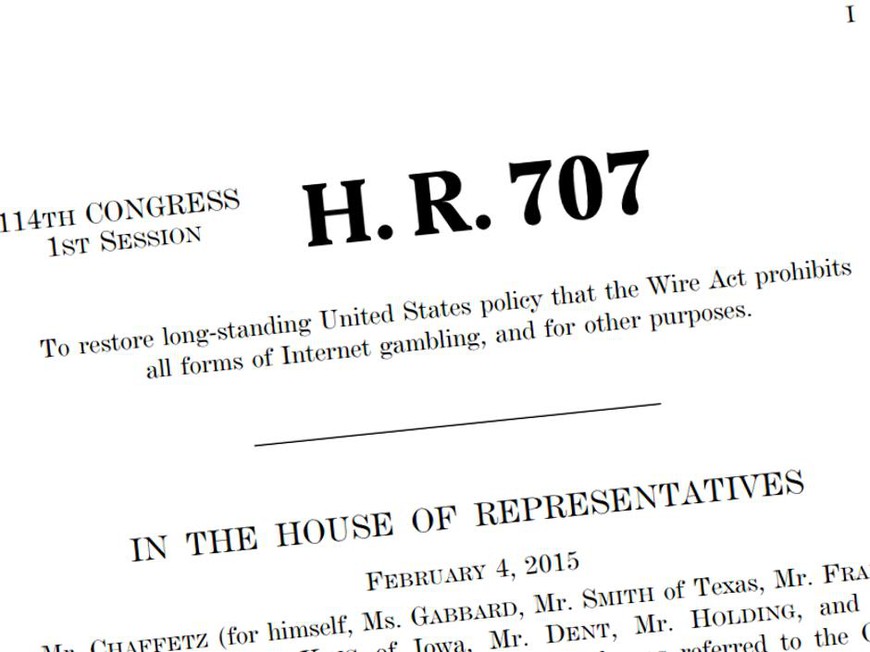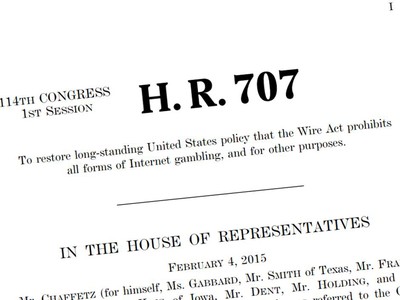

A hearing on the Restoration of America’s Wire Act (RAWA) bill—which seeks to ban most forms of online gaming at a federal level in the US—is set to take place on March 26 according to the Executive Director of the Poker Players Alliance, John Pappas. The hearing was originally scheduled to take place on March 5, but was postponed due to the threat of inclement weather in the Washington DC area.
RAWA, also known as HR 707, was introduced by Representative Jason Chaffetz (R-Utah) last month, and currently has 14 cosponsors—five of which sit on the 14 person subcommittee that will conduct the hearing. The bill is nearly identical to a version that was introduced last year in both the House and the Senate, but failed to gain enough support to progress to a vote.
What to Expect from The RAWA Hearing
The RAWA hearing will not be a debate where those on both sides of the issue present evidence to support their claims. Instead, a carefully selected group of “witnesses” are expected to present a very one-sided view of online gambling.
There will be no gaming regulators sharing their experience of challenges and successes that have accompanied regulated online gambling in the United States, or any other jurisdiction in the world for that matter. There will also be no law enforcement agents presenting evidence of wrongdoing associated with online gambling.
What you can expect is plenty of fear mongering and handwringing as witnesses present their testimony. According to igaming insider Chris Grove, the list of witnesses scheduled to testify before House Subcommittee on Crime, Terrorism, Homeland Security, and Investigations includes outspoken gambling critics John Kindt, Les Bernal, and Professor Mike Fagan. Internet security expert Parry Aftab is also expected to testify.
None of the invited witnesses are considered to be pro-online gambling. However, in the past Aftab has favored regulation over prohibition as a way to protect consumers.
RAWA Proponents Favor Anecdotal Evidence
Expect to hear plenty of stories of things that “could happen” along with a list of “dangers” that cannot be prevented, but don’t expect any actual evidence to support such claims. Internet gambling has been regulated around the world for over a decade and is even taking place legally in many states across the US. Yet, there is no evidence that online gambling has been linked to terrorism, money laundering, under aged gambling, or an increase in problem gambling as some of the witnesses are expected to claim.
There are also no instances that geolocation technology put in place to confine igaming within specific geographical boundaries has allowed players outside those boundaries to participate in regulated online gaming, though that will not stop opponents of igaming from claiming the technology is insufficient to achieve its goals.
Whether innocently ignorant or intentionally intended to misrepresent the truth, you can also expect testimony that conflates legal regulated online gaming with the problems of unregulated offshore black-market igaming.
When all is said and done, the hearing will be nothing more than a way for online gaming opponents to advance their agenda in public without providing an opportunity for the facts to play a role.

